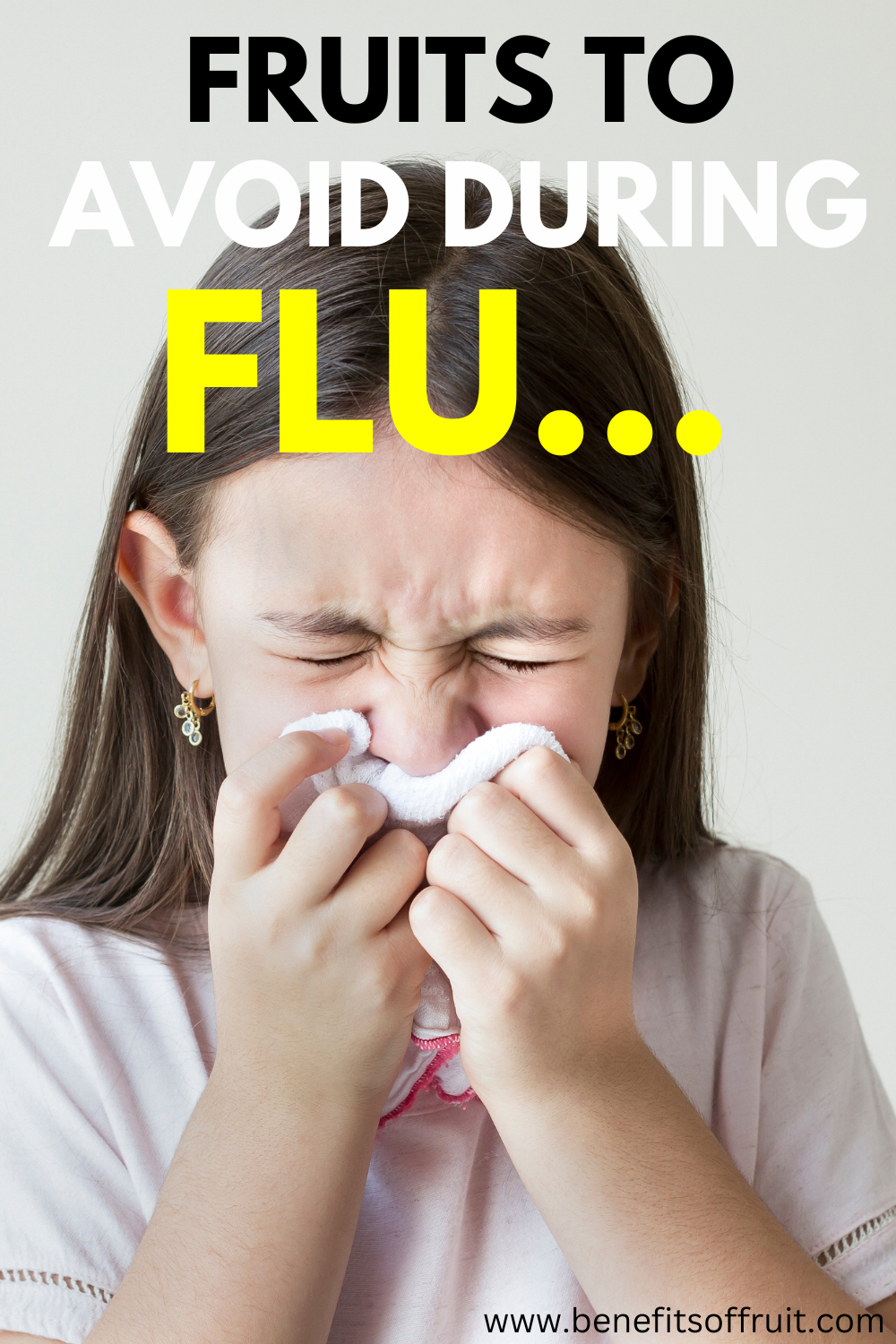The flu, or influenza, is a viral infection that significantly impacts our health, leading to symptoms such as fever, body aches, sore throat, and fatigue. Nutrition plays a pivotal role in managing these symptoms and aiding recovery, and the importance of what you eat becomes more evident when you’re under the weather. While fruits are usually considered healthy, some can aggravate flu symptoms. Understanding which fruits to avoid during the flu can help reduce discomfort and speed up the healing process.
Understanding the Nutritional Needs During Flu
When affected by the flu, the body’s immune system works hard to fight off the infection, leading to increased nutritional needs. Hydration is crucial, as fever and sweating can cause dehydration. The immune system also needs vitamins, minerals, and antioxidants to function optimally. However, certain foods and drinks, including some fruits, can aggravate symptoms or hinder recovery.
Fruits to Avoid During Flu
Citrus Fruits
While citrus fruits are high in vitamin C, they may not be the best choice during the flu. Their high acidity can irritate a sore throat and worsen inflammation, causing additional discomfort. Furthermore, the acidic nature of oranges, lemons, limes, and grapefruits can trigger acid reflux, leading to heartburn and worsening nausea. Although they are beneficial in other circumstances, it is advisable to avoid citrus fruits if you have a sore throat or any stomach issues during the flu.
Bananas
Bananas, known for their potassium content and easy digestibility, may not be the best choice for everyone during the flu. Some believe that bananas can increase mucus production, potentially worsening nasal congestion and respiratory discomfort. However, this effect is not universally experienced, and the impact may vary from person to person. If you notice that bananas worsen your congestion, it’s best to avoid them during the flu.
Canned Fruits and Fruit Juices
Canned fruits and fruit juices often contain added sugars, which can suppress the immune system and worsen inflammation. High sugar intake may decrease the efficiency of white blood cells, making it harder for the body to fight infections. Additionally, the preservatives and artificial flavorings found in many canned fruits can be harsh on a sensitive digestive system. Opt for fresh fruits with low sugar content or avoid canned options altogether to support your recovery.
Dried Fruits
Dried fruits such as raisins, apricots, and prunes have a high sugar concentration, which can weaken immune function and exacerbate inflammation. These fruits can also be tough on the digestive system, leading to bloating and discomfort, especially when the body is already under stress from fighting the flu. The lack of moisture in dried fruits can also exacerbate dehydration, which is a common issue during illness.
Stone Fruits (Certain Conditions)
Stone fruits like peaches, plums, and cherries can sometimes trigger allergic reactions, worsening respiratory symptoms. People with allergies or sensitivities might find that stone fruits aggravate their condition, leading to increased coughing and congestion. Although they are generally healthy, if you have sensitivities or respiratory conditions like asthma, it’s best to avoid these fruits during the flu.
Exotic Fruits
Exotic fruits such as pineapple, kiwi, and papaya can be potential allergens or digestive irritants, particularly if they are not a regular part of your diet. Pineapple, for instance, contains bromelain, which can cause irritation for some people, particularly in the mouth and throat. Kiwi, with its small seeds, can also be an irritant for people with sensitive digestive systems. During the flu, it’s advisable to avoid introducing new and exotic fruits into your diet to prevent potential adverse reactions.
Impact of Avoided Fruits on Flu Symptoms
Certain fruits can worsen common flu symptoms such as sore throats, congestion, or inflammation due to their natural properties or additives. Citrus fruits, with their high acidity, can worsen a sore throat, while bananas may increase mucus production, worsening congestion. Canned and dried fruits’ high sugar content can suppress immune function and exacerbate inflammation, making recovery slower. Stone and exotic fruits can trigger allergic reactions or worsen digestive issues, adding to the discomfort experienced during the flu.
Fruits with Caution
While some fruits are generally beneficial, they can cause issues in certain situations during the flu.
Apples: Fresh apples are a good source of fiber and vitamins, but their high fiber content can cause bloating in some individuals, especially when eaten raw and in large quantities. Opting for applesauce can help soothe a sore throat while providing the benefits of apples without irritating the stomach.
Pears: Similar to apples, pears are high in fiber and can cause digestive discomfort when not fully ripe. Cooking pears to soften them or opting for ripe pears can reduce this risk and still offer their nutritional benefits.
Healthy Alternatives and Recommendations
Instead of the fruits that might worsen flu symptoms, consider these alternatives:
- Applesauce: Cooked apples provide a soothing and easy-to-digest option that can help ease a sore throat.
- Berries: Low in sugar and high in antioxidants, berries can boost immune function without aggravating flu symptoms.
- Melons: Watermelon, cantaloupe, and honeydew are hydrating and gentle on the stomach, making them excellent choices for flu recovery.
- Pineapple (with caution): While pineapple contains bromelain, which can irritate, it also has anti-inflammatory properties that can help reduce congestion in some people.
Conclusion
Choosing the right fruits during the flu can significantly impact recovery. Avoiding fruits that can aggravate symptoms, such as citrus fruits, bananas, and those with high sugar content, can help reduce discomfort and aid healing. Opting for soothing, hydrating fruits that are gentle on the digestive system will better support the body’s recovery process and ensure a quicker return to health.
